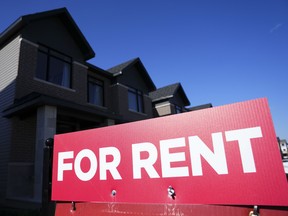The article discusses the issue of housing affordability in Canada, particularly the role of capital gains tax breaks and financialization of rental housing. Here are some key points:
- A report by Silvina Vaca, an economist at the Toronto-based think tank, the C.D. Howe Institute, argues that tax policies favoring corporate real estate investment have contributed to rising rents and made homeownership less accessible.
- The report suggests increasing the capital gains inclusion rate for corporations and trusts to two-thirds from one-half, which would reduce the advantage of buying and selling properties for profit.
- Other recommendations include building one million non-market homes over the next decade, ending preferential tax treatment for Real Estate Investment Trusts (REITs), and extending the underused housing tax to apply to properties owned by Canadians.
The article also touches on the issue of population growth in Canada. According to Statistics Canada data released in September 2023, the country added 250,229 people between April and July this year, representing a quarterly growth rate of 0.6%. This is slower than the growth rates during the same quarters in 2022 and 2023.
The report makes several suggestions to address the financialization of rental housing:
- Building one million non-market homes: This would help increase the supply of affordable housing and reduce pressure on existing rental units.
- Ending preferential tax treatment for REITs: By removing the tax advantages, REITs might be less attractive as an investment option, reducing their market share.
- Full inclusion of inflation-adjusted capital gains in taxable income: This would ensure that corporations and trusts pay taxes on any profits made from selling properties, reducing their advantage over individual homeowners.
The government’s latest budget proposed to increase the capital gains inclusion rate for corporations and trusts to two-thirds from one-half, which was put into effect as of June 25. However, the legislation has not been passed yet.
Overall, the report suggests that addressing the financialization of rental housing requires a multi-faceted approach, including policy changes, increased investment in affordable housing, and education on the impact of tax policies on homeownership.



